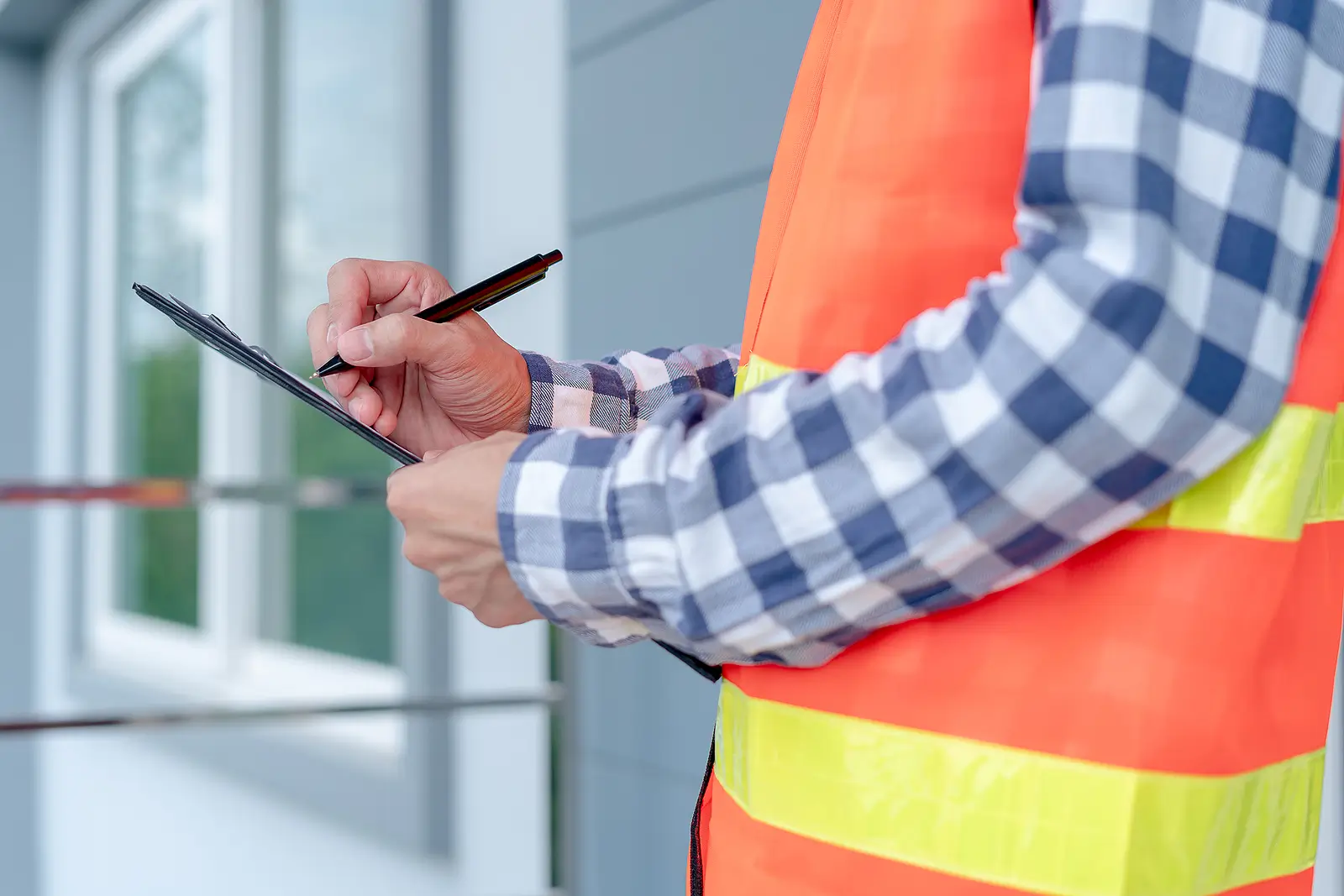Successful property management in Charlotte means protecting your investment while building trust with tenants. Rental inspections play a vital role in this process, helping landlords catch small issues before they become expensive repairs and to confirm that tenant compliance and lease agreements are being followed.
But inspections also raise an important question: How often is too often, and what do rental property inspection laws in North Carolina allow?
At Carolinas Dynamic Realty, we help Charlotte landlords navigate these questions every day. Our experience in the local market gives us the insight to recommend inspection practices that balance compliance, maintenance, and tenant satisfaction.
Continue reading to learn how often you should inspect your rental property and the best ways to do it right.
Key Takeaways
- Set a clear schedule: Inspections should happen at move-in, mid-lease for longer terms, and move-out, with routine checks once or twice per lease.
- Respect tenant rights: Always give 24–48 hours’ written notice and schedule visits during normal business hours, except in emergencies.
- Use different inspection types: Move-in, routine, move-out, safety, and drive-by inspections each serve a specific purpose in protecting your property.
- Avoid common mistakes: Over-inspecting, ignoring repairs, or poor communication can strain tenant relationships and create legal risks.
Why Rental Property Inspections Matter
Inspections are more than just walkthroughs. They provide peace of mind for both landlords and tenants, ensuring rental units remain safe, habitable, and well-maintained.
Maintenance and Safety
Regular rental property inspections allow landlords to spot issues like leaky plumbing, faulty wiring, or roof damage before they escalate into costly repairs. Preventative upkeep, such as HVAC servicing, chimney cleaning, and septic system checks, keeps the property's condition in top shape and reduces emergency calls. This addresses potential safety hazards before they become serious.
Lease Compliance
Rental inspections also serve as a safeguard for lease compliance. They help landlords verify that tenants are following the rules, such as avoiding unauthorized pets, subletting, or long-term guests, while protecting the tenant's lease terms.
Tenant Satisfaction and Retention
Far from being intrusive, properly handled inspections show tenants that their landlord or property manager cares about the condition of the property and their living conditions. This builds trust, reduces disputes, and improves retention, contributing to a positive landlord-tenant relationship.
Local Laws and Regulations in North Carolina
In North Carolina, landlords have flexibility when it comes to rental property inspections since the state does not impose a strict limit on how often they may occur. Instead, the law emphasizes a tenant's privacy and quiet enjoyment of their home.
To balance these protections with the need to identify maintenance issues, many landlords establish a reasonable inspection schedule through the rental agreement. State law requires that landlords provide proper notice before entering a rental unit, and while no exact timeframe is specified, industry best practice is 24–48 hours’ written notice, giving advance notice to tenants.
Emergencies such as fires, floods, or gas leaks are exceptions, allowing landlords to enter immediately without notice. However, frequent or unannounced visits may be considered excessive inspections and could result in legal consequences.
Types of Inspections and Their Purpose
Landlords in Charlotte rely on several types of rental property inspections, each serving a distinct purpose in protecting the property and fostering good landlord-tenant relationships.
Move-in inspection: A move-in inspection establishes the baseline condition of the home, documenting any existing normal wear and tear to avoid disputes later. It can also serve as a move-in checklist for tenants.
Routine inspection: Typically conducted once or twice during the lease agreement, regular property inspections help ensure the property's condition is maintained and allow early detection of needed repairs.
Move-out inspection: When tenants move out, a final inspection compares the property's condition to the move-in report, determining whether deductions from the tenant's security deposit are justified.
Drive-by inspection: Some landlords perform drive-by inspections, which are quick exterior checks for issues like lawn neglect, trash buildup, or visible damage. This type of inspection should be limited so tenants don’t feel overly monitored.
Safety inspection: Safety inspections focus on essentials such as smoke detectors, carbon monoxide alarms, and fire extinguishers to ensure compliance with safety standards.
When scheduled reasonably and communicated clearly, each of these rental inspections benefits both landlords and tenants. A successful rental property inspection ensures thorough review and tenant confidence.
Tenant Notification Requirements
Tenant notification is a core part of lawful inspections in North Carolina. Landlords or property managers should notify tenants with a written notice stating the date, time (or time window), and purpose of the visit.
A 24–48 hour notice period is standard, and inspections are generally limited to normal business hours, between 8 a.m. and 5 p.m. on weekdays.
While emergencies allow entry without prior notice, all other situations require informing tenants in advance to protect both landlord and tenant. Without proper notice, tenants may refuse entry or seek legal remedies.
In fact, they can document incidents and file a complaint in the North Carolina District Court, which may lead to court-ordered remedies or even early lease termination in severe cases. That's why clear, timely communication remains the best way to avoid these disputes.
Conducting a Successful Inspection
A good property management strategy includes a rental property inspection checklist to guide the process. Cover plumbing, electrical systems, locks, alarms, appliances, and outdoor areas. Ensure safety hazards are addressed, and personal belongings are respected.
Professionalism is key. It's highly advised to arrive on time, explain the purpose, and avoid commenting on a tenant’s lifestyle. Document findings with notes and photos, and follow up with a written report outlining any maintenance issues.
This structured approach makes the inspection process smoother and helps maintain tenant compliance.
Respectful and Responsible Inspection Practices
A well-timed landlord inspection protects the property owner's investment while respecting the tenant's privacy. Move-in and move-out inspections are essential, and mid-lease inspections are recommended for longer terms.
North Carolina law protects tenants’ right to quiet enjoyment, so landlords should avoid practices that could be considered harassment, including the following:
- Entering without notice (except in emergencies)
- Scheduling visits too often or at inconvenient times
- Allowing contractors and rental property inspectors to enter unsupervised
By combining a reasonable schedule with respectful conduct, landlords inspect properly, safeguard their rental property, and maintain trust.
Common Mistakes Landlords Should Avoid
Common mistakes during rental property inspections often stem from imbalance and poor communication. Ignoring repairs after inspections frustrates tenants and could lead to legal claims, while poor documentation makes it harder to resolve disputes over the tenant's security deposit.
Similarly, weak communication, such as surprising tenants with visits or providing unclear notices, undermines trust. By avoiding these pitfalls, landlords can ensure inspections are constructive and beneficial rather than disruptive.
Handling Emergencies
In order to handle emergencies effectively, Charlotte landlords must be prepared with a clear protocol. Keeping a list of reliable emergency contacts, such as plumbers, electricians, and restoration services, ensures quick action when problems arise. Notify tenants who to call for urgent issues, and respond immediately to protect both the property and tenant safety.
Routine rent inspections catch risks like faulty wiring or roof leaks before they become emergencies. Even so, unexpected problems can arise, and landlords need a quick, organized response.
Finding the Right Balance in Charlotte Property Inspections
Rental inspections in Charlotte protect rental property value, ensure safety, and foster strong tenant relationships. The key is balance: conduct inspections at move-in, mid-lease, and move-out; give advance notice; keep visits professional; and follow up on maintenance requests promptly.
By respecting local laws and tenant rights, Charlotte landlords safeguard investments, prevent disputes, and strengthen trust—all while maintaining a solid reputation in the rental process.
Ready to simplify inspections and protect your rental property? Contact Carolinas Dynamic Realty today and let our expert property management company handle every detail for you.
FAQs
1. How often should a landlord inspect a rental property in Charlotte, NC?
Landlords should conduct inspections at move-in, mid-lease for longer terms, and move-out. Routine inspections are typically done once or twice during a lease to ensure maintenance and lease compliance.
2. Do landlords need to give notice before entering a rental unit?
Yes. North Carolina law requires landlords to provide written notice, typically 24–48 hours in advance, stating the date, time, and purpose of the visit, except in emergencies.
3. What types of rental property inspections exist?
Common inspections include move-in, routine, move-out, drive-by, and safety inspections, each serving to protect property, ensure compliance, and maintain tenant safety and satisfaction.
4. What common mistakes should landlords avoid during inspections?
Landlords should avoid skipping inspections, over-inspecting, ignoring repairs, poor documentation, and weak communication, as these can damage tenant relationships and lead to legal issues.


